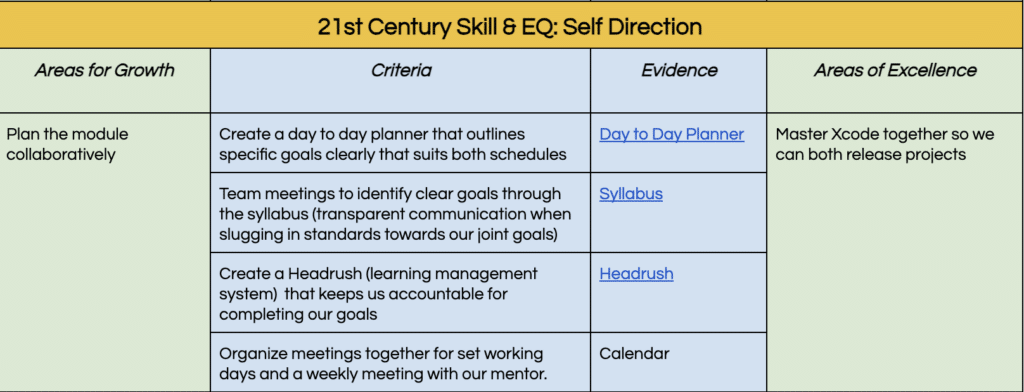
With the breathtaking pace of the current AI-driven narrative, a disconcerting trend of thinking has arisen for me personally.
The question bouncing around is, have we jumped too far forward? Not in a technological sense, but in the sense of will all this new technology draw our learners back into passion and mastery learning — and will educators be in a sane head space to deliver it.
Alarmingly as it stands, teachers are increasingly disassociating from their roles in schools. A report entitled “State of America’s Schools” by Gallup revealed that a mere 31% of educators were “engaged” in their work. Students, too, are progressively estranging themselves from the joy of learning. Gallup found that 29% reported feeling unengaged, while a disheartening 24% declared feeling actively disengaged. Research by Sonnentag and Niessen corroborated this detachment, attributing it frequently to negative perceptions of work or school, thus underscoring an urgent need for positive reframing within our education system before we jump into marketable solutions or reimagining anything.

One intriguing solution is “Teach Like a Champion,” which proposes six Positive Framing Techniques: living in the present, fostering optimism, allowing (reasonable) autonomy, articulating positivity, promoting challenge, and speaking to aspirations. At THINK Global School, these techniques have inspired initiatives like the THINK Action Plan (TAP) and the Table of Excellence, both of which underscore emotional intelligence in conjunction with academics. We aim to revitalize the joy of learning by granting students autonomy through our personal projects and mastery programs.
Table of Excellence (TOE) construction tips:
Identify the requirements for the summative assessment. Understand the end product, whether it is predetermined or your choice.
Dissect the summative product into its key components. These components form the main categories under which more detailed criteria will fall. Write each one in bold in a separate row in the “Criteria” column below the section for your 21C Skill.
Remember, the Table of Excellence’s purpose is to emphasize Emotional Intelligence (EQ). Learners could use for example the World Economic Forum’s taxonomy of learning to select their EQ components.

Sample Table of Excellence
Yet, to genuinely challenge the status quo, we must debunk an obsolete myth that haunts the realm of education—the “skills gap.” In her incisive essay “The Reader Lights the Candle,” Marina Gorbis, Executive Director of the Institute for the Future (IFTF), shatters this illusion. The assumption that our education system fails to equip students with the “right” skills for the job market, thus exacerbating economic inequality, is fundamentally flawed.
“Today, we have the greatest number of people with postsecondary degrees in history — close to 35% of Americans have Bachelors’ degrees, compared to only 4% in the 1960s — yet average wages have not increased as would be expected if more years of education resulted in significantly higher wages.”
Marina Gorbis
This leads us to the actual predicament— a nuanced issue of growing detachment within our education system from both teachers and students.
Unfortunately, we may be looking for solutions in the wrong places.
Initially, teachers were enthusiastic about shaping well-rounded individuals, but they have been diminished to mere conveyors of rebranded marketable skills. This trend risks turning education into a soulless tool for job preparation, resulting in teachers feeling detached from their once-dignified purpose.
Students, as has been stated many times – ideally the focal point of the learning experience, are feeling marginalized. The outdated, one-size-fits-all model of education, with its relentless focus on rote learning and standardized testing, suffocates their curiosity and fails to cater to their unique learning styles. Learning should not be a laborious task leading to widespread disengagement.
As we stand at this crossroads, we must rethink. Just as early visionaries at Tesla rethought sustainable energy and transportation, or as Steven Sasson (Kodak engineer) created the first digital camera prototype in 1975, we need to embrace a true maverick mindset towards an education system driven by holistic development rather than market demands. This shift involves embracing a broader definition of learning that extends beyond job skills and encompasses critical thinking, creativity, empathy, and global awareness.
Furthermore, in this era of singularity, we cannot overlook the role of technology. Appropriately utilized, AI can offer personalized learning experiences, nurture collaborative learning, and democratize education. However, while AI is clearly a powerful tool and a soon-to-be-defined mega-trend by futurists, I fear it is not a cure-all for the detachment problem.
In essence, the issue of detachment in education calls for a concerted effort to reenvision our education system around trust and connection. We must celebrate the intrinsic value of learning and acknowledge the pivotal role that teachers play in shaping our society’s future – not place them at the mercy of fad-chasing (please note: I absolutely acknowledge AI’s impact will be greater than the famous WhiteBoard). Although this journey may be as challenging as the quest against singularity, the rewards – a more engaged, curious, and well-rounded generation – are worth the endeavour.
As we progress, it is crucial to move beyond the ‘skills gap’ myth and confront the actual challenge: the escalating detachment in our schools. We must question, scrutinize, and continually challenge prevailing narratives. Reform should always begins with asking the right questions.










